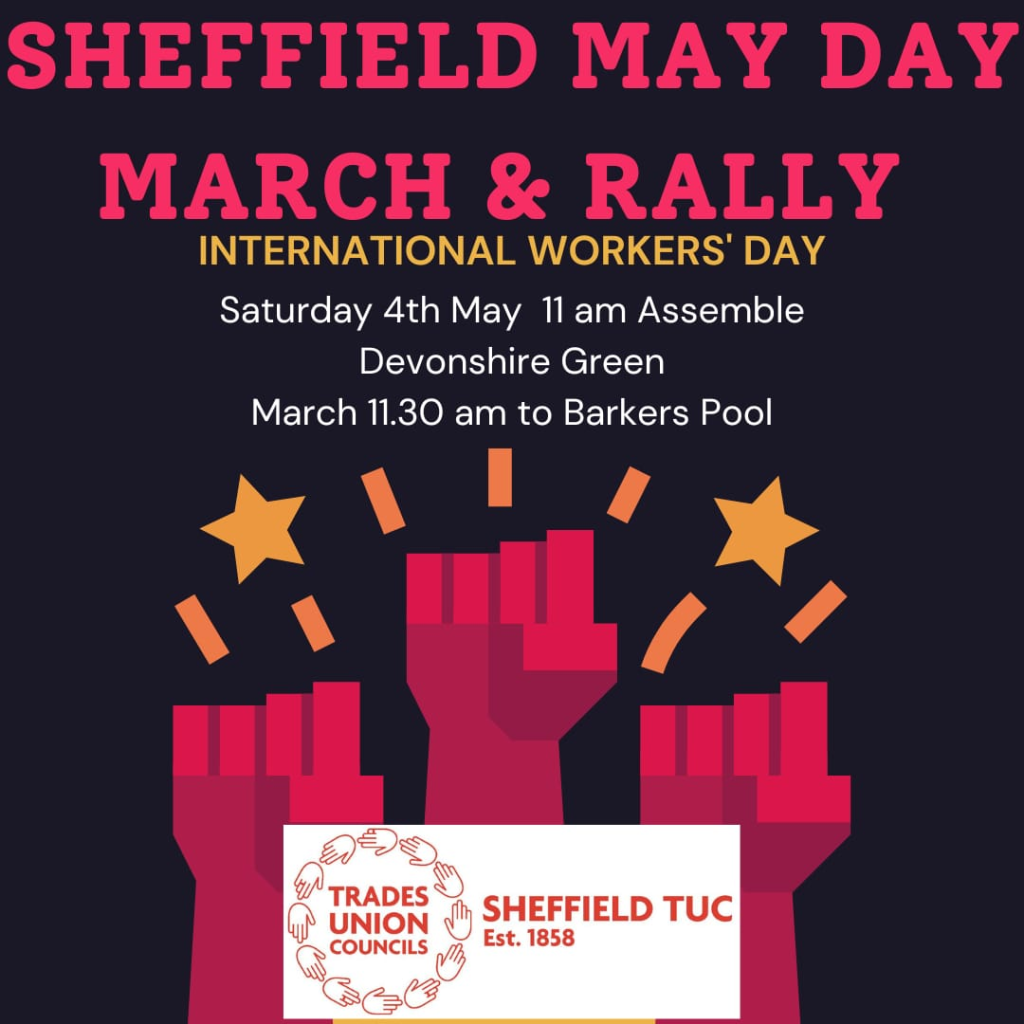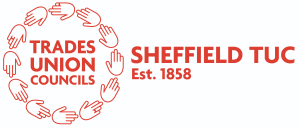What is industrial action?
Industrial action can be strike action (which is any concerted stoppage of work) or action short of strike action such as ‘go-slows’ or ‘working to rule’.
Is it against the law to strike?
Although there is no positive legal right to strike in the UK, strike action organised by a trade union is legal provided some tough conditions are met.
For example:
- The union must have conducted a lawful ballot of all of the members it believes will be called upon to take part.
- The action must be over a trade dispute between workers and their employer over an issue like terms or conditions of employment and as defined in s.244 of the Trade Union and Labour Relations (Consolidation) Act 1992.
- The general secretary, or someone else authorised by the union’s rules, must authorise any industrial action.
- The person named on the ballot paper must issue a call for action before industrial action can take place.
- There are very strict rules about the ballot and the notice that must be given to the employer about the action.
At what point do we go on strike?
Industrial action is a last resort. UNISON always tries to negotiate and bargain for its members before pursuing industrial action.
What are picket lines, and how should we organise them?
A picket line is a group of striking workers located at or near their place of work who meet at the workplace to increase awareness and support for their cause. Picketing members may tell other workers about the dispute between them and their employer.
During a picket line striking members are allowed to persuade workers, including agency workers and delivery people, to stop interacting with the business. This must be done peacefully, as criminal law applies to picket lines.
Striking members mustn’t use threatening behaviour or force to prevent others from attending work, cause criminal damage, or prevent police officers from carrying out their duties.
The maximum appropriate number of striking members on a picket line, according to the relevant code of practice, is 6. However, this is not enforceable in law.
The police in Great Britain can use special powers, such as obtaining an order prohibiting the picket, if the picket contains more than 20 people and they believe it may result in serious disruption to the life of the community.
Can I be dismissed for taking part in industrial action?
It is automatically unfair to dismiss someone who has taken part in any lawful industrial action within 12 weeks of the first day of action.
Can an employer deduct money from your wages for taking part in industrial action?
Yes. An employer can deduct up to one fifth of weekly pay for a day of strike action. In many HEls trade unions have an agreement that only 1/365 of pay will be deducted per day of strike action, and for those on academic contracts this should always be the case.
Industrial action is a last resort. UNISON always tries to negotiate and bargain for its members before pursuing industrial action.
What are picket lines, and how should we organise them?
A picket line is a group of striking workers located at or near their place of work who meet at the workplace to increase awareness and support for their cause. Picketing members may tell other workers about the dispute between them and their employer.
During a picket line striking members are allowed to persuade workers, including agency workers and delivery people, to stop interacting with the business. This must be done peacefully, as criminal law applies to picket lines.
Striking members mustn’t use threatening behaviour or force to prevent others from attending work, cause criminal damage, or prevent police officers from carrying out their duties.
The maximum appropriate number of striking members on a picket line, according to the relevant code of practice, is 6. However, this is not enforceable in law.
The police in Great Britain can use special powers, such as obtaining an order prohibiting the picket, if the picket contains more than 20 people and they believe it may result in serious disruption to the life of the community.
Can I be dismissed for taking part in industrial action?
It is automatically unfair to dismiss someone who has taken part in any lawful industrial action within 12 weeks of the first day of action.
Can an employer deduct money from your wages for taking part in industrial action?
Yes. An employer can deduct up to one fifth of weekly pay for a day of strike action. In many HEls trade unions have an agreement that only 1/365 of pay will be deducted per day of strike action, and for those on academic contracts this should always be the case.
What is this HE Pay ballot about?
This ballot is for national strike action over the employers’ imposed pay uplift of 5-8% for higher education staff, depending on spinal column point. This uplift was for the year commencing 1 August 2023 with a portion added to annual salaries six months early and backdated to 1 February 2023. This early payment was imposed in the March 2023 payroll in many, but not all, HEls, with the remainder imposed in August 2023.
The higher education service group executive agreed to re-ballot members at all higher education institutions previously balloted in 2023 where we achieved at least a 34% turnout and a clear majority in favour of action, and gave branches an opportunity to opt out.
Who makes the decisions regarding industrial action?
UNISON is a member-led union and decisions are made by members. In any vote on whether or not to take industrial action, each member receives a postal ballot, which they are asked to complete and return within a designated period.
If more than 50% of the members at your university did vote, and if a majority of those who returned their ballot papers voted in favour of action, your union can call members out on strike.
The service group executive will decide whether to call days of coordinated strike action in England, or whether to delegate the decision to branch committees on how many days local strike action to take and when, in consultation with members. Proposals will be referred to regional and national level for authorisation. In Scotland the Regional HE Committee will be asked to make decisions on dates for action, in conjunction with branches. The elected members of the Industrial Action Committee will make the final decision.
When are the next strike days?
Days of strike action will be scheduled after the ballot has closed, from 18 March 2024 onwards, up to 18 August.
Will strike pay be available for any days I am on strike?
Yes. UNISON has agreed to pay members taking strike action up to £50 per day in strike pay (or full take home pay if this is less) from day one of any properly authorised strike action. Your local branch will administer this by passing on the names of members and details of the amount of money that has been deducted by your employer to UNISON. It will take a few weeks for the money to be paid. If you take strike action your employer is entitled to deduct up to 115th of your weekly pay or equivalent, and if it is less than £50 this is the amount that would be paid to you as strike pay.
What do I have to do to get strike pay?
You will need to show proof that you were on strike (in the event of a strike we will send precise instructions regarding what we need) and a copy of your wage slip to show what deduction was taken from your pay.
Is there any other financial help available?
If your employer deducts more than £50 from your pay for a day of strike action and this causes you financial difficulty you will be able to apply to your branch’s Hardship Fund. We will share details of this in the event of strike action taking place.
I’m on benefits and they will be affected if I take strike action. Is there anything I can do about that?
Talk to your branch to explain how you will be affected. You may be granted an exemption from taking strike action if you will lose benefits by doing so.
Am I breaking my contract by taking strike action?
All industrial action is a breach of your contract of employment. Because UNISON is carrying out a statutory ballot and any action will be formally called in accordance with legislation, the law protects workers automatically from dismissal while taking part in lawful industrial action at any time within 12 weeks of the start of the action and, depending on the circumstances, dismissal
may also be unfair if it takes place later. As far as we are aware, this kind of dismissal has never happened in higher education.
Does taking strike action break my continuous service?
No. The period of time that you are on strike does not count towards your continuous service, but it does not break it either.
Do I have to tell my employer that I am taking action?
It is often the case that management will send out emails/letters demanding that you declare in advance whether you will be taking industrial action. This is intended to minimise the effect of the action and can have the effect of misleading and intimidating members. You are under no obligation to inform your employer I manager in advance as to whether you will be taking part in strike action. UNISON will have provided your employer with all the information about the action required by law. Once you are back at work following the strike action, you should respond truthfully to any query from your employer as to whether you have taken or are taking industrial action. You should not, however, respond to any such query while you are on strike.
What if I am working from home on the day of the strike?
Going on strike means you do not undertake any work on a specific day, and that includes those members that are working from home.
Already booked annual leave during the strike dates; what should you do?
Where strike action begins during a period in which an employee is on annual leave, then in the absence of evidence to the contrary, he or she should be deemed to be on leave and not on strike. If your annual leave is essential, you should take it as planned. If your leave is not essential, you may wish to move it so that you can participate in industrial action alongside your colleagues.
What if I am sick during the strike?
Employees who are absent due to sickness before industrial action starts should be assumed to be on sick leave, providing that any necessary certification is produced. If the employee reports as sick on the day the action starts, the university will need to make its own judgment, taking into account any evidence that the employee can provide, whether they should be regarded as on sick leave or on strike.
I am not a UNISON member; can I take part in industrial action?
We would like everyone to respect the picket lines and not go into work. Non union members who take part in legal, official industrial action have the same rights as UNISON members not to be dismissed as a result of taking action.
However, our strong recommendation is that you join UNISON so that you have the protection of a trade union before you take part in industrial action. If you have provided the details requested on the UNISON member application form, your membership will be active from the date of application. This means that you are able to take part in any strike action while awaiting your membership number.
How late can someone join the union and still take part in strike action? Individuals can join UNISON at any point up to and including on the picket line on the day of action and lawfully participate in the strike.
If we take industrial action, what am I expected to do?
Your union only organises strike action when every other avenue has been exhausted and when the democratic decision-making bodies of the union believe there is no other way to make employers change their position. It is a very serious sanction and that is why we ask that every member observes the strike. Every member who does not observe the strike is directly undermining the union’s bargaining power and making it harder for the union to protect all of its members.
Every member who does strike is helping to advance the interests of all staff throughout the HE sector. When a strike takes place, we ask members not to do any work for all of the days specified by the union. This includes, for instance, time before 9am and after 5pm. It also means not doing any preparation for work that you are due to do when you return to work after you strike.
On strike days, the best possible thing you can do is contact your UNISON branch and volunteer to help at the picket lines – and ask colleagues in your department to join you. Picketing is a vital activity intended to demonstrate to the employer the scale of the disruption that the union is able to cause and get support for your action from students, other colleagues and the public.
Some branches also organise a rally at some point during the day, or perhaps a march. Find out whether there is a rota to sign up to, or whether someone will meet you at the picket line to show you what to do. Remember, if you are on strike, you must not go into any buildings or onto any land owned by your employer, so you won’t be able to use any of the facilities.
Do I have to take strike action if I am pregnant?
No, if you are pregnant and have notified your employer of the expected date of birth you are exempted from strike action. If it is your intention to be away from work on maternity leave for the whole potential period of any strike mandate we achieve (6 months from the date the ballot closes) you should not vote in the ballot and should ask you branch to arrange for you to be excluded from the figures.
I have other questions that have not been covered by these FAQs; what should I do?
Visit UNISON’s web page on industrial action here: https://www.unison.org.uk/get-help/knowledge/disputes grievances/industrial-action/ If you are unable to find the answer to your question please contact your local UNISON branch and they will be able to advise you on a range of issues.
I have a disability. How will the picket lines be made accessible for me?
Contact your branch and explain your access needs. They will discuss with you what can be done to make the picket lines and other action accessible for you.
Will taking industrial action affect my pension?
Absence on strike for a day or more will not count as pensionable service. This means you will not make a contribution towards your pension for the time you are on strike.
In some strikes, particularly short ones, employers may not withhold superannuation contributions, so taking strike action has not generally affected pensions, though it is possible that it could.
If your employer decides to deduct pay for the day of action, the employers do not have to pay pension contributions during that period, and you will not have paid your portion of contribution for that day.
The impact on your final pension would be extremely small but you might want to consider replacing the lost contribution.
It is possible, with your employer’s agreement, to pay a sum equal to the employee and employer contribution and receive full credit for the day’s absence and continue to have full cover.
Any member wishing to do this must inform their employer in writing before the absence takes place.
It is possible that members of the Universities Superannuation Scheme (USS) are not covered by the death benefit provisions under that scheme on any days on which they take strike action.
Questions about taking strike action due to a trade dispute for members of the LGPS. You will also need to check any additional information from your employer.
How will strike action affect my pension benefits?
You do not earn pension for the days you are on strike. Absence from work for strike action for one or more complete day means that those days do not count in any way for pension purposes.
How can I reinstate the pension I have lost due to strike action?
You can elect to purchase the amount of pension lost by paying Additional Pension Contributions (APC’s). The cost of purchasing the amount of lost pension for the period of absence would be fully met by you; your employer does not make a contribution to the APC. To pay APCs the member must have at least one year to go before retirement.
If you have membership of the LGPS before 1 April 2014 you will have built up benefits in the final salary scheme. If you choose to pay for the lost pension in the scheme the amount you pay will go towards covering the protections associated with the pre-1 April 2014 membership.
What effect will a strike absence have on my pension benefits if I don’t make up the shortfall?
The amount of pension you lose is calculated as the appropriate fraction of your assumed pensionable pay for that period of absence (i.e., 1149th of your assumed pensionable pay for that day if you were in the main section of the scheme or 1198th if you were in the 50/50 section).
Will UNISON exempt members from strike action with less than one year before retirement?
Previously UNISON has exempted members in the last year of service from strike action because of the possible effect of reduced final pay on final salary benefits earned up to April 2014 in England and Wales and April 2015 in Scotland and Northern Ireland. In practice, as one of the two immediately preceding years’ salary can be used for final salary purposes, there is likely to be minimal effect for just a few days of absence on strike.
If you require any further information or clarification, please contact your LGPS pension scheme directly.




























